Fuel Prices Are Allegedly Cooling Off
With the last several months delivering record-breaking fuel prices, as society endures what has undoubtedly been the largest spike in energy cost and inflation since the 1970s, everyone has been hoping to catch a break this summer. Some have even gotten theirs. While things are still looking exceptionally bleak in the long term, the United States appears to be enjoying a modest reprieve.
Report: Some Automakers Abandoning AM Radio
An acquaintance of mine recently said he would never purchase an all-electric vehicle and offered up a reason I never heard before. “They don’t come with AM radio,” he said.
While this surprised me, shifting technological preferences have indeed started to change how automobiles and broadcasters interact. As an example, a gaggle of Mazda owners found their vehicles stuck tuned to National Public Radio this February after a local station transmitted an FM data packet that effectively froze the cars’ infotainment system amid the swap to next-generation broadband services. That transition has already caused some interesting problems for the industry and electromagnetic interference has likewise become the default explanation for automakers limiting your frequency band choice in certain vehicles. But it doesn’t explain why some companies are ditching AM radio outright. In fact, a little research has shown a lot of the explanations given by manufacturers leave a lot to be desired.
EVs Are Becoming More Expensive, Not Less
A few years ago, the industry narrative was that all-electric vehicles would reach financial parity with their combustion-driven counterparts in 2025. The assumption was that this would gradually occur by way of ramping up battery production and leveraging economies of scale. However, reality had a different take, as the world is now confronting record-setting prices across the board. Manufacturer and dealer hikes have resulted in the average invoice of EVs rising to $54,000 — roughly 10 grand higher than the typical transaction price of gasoline-powered vehicles, according to J.D. Power.
With economic pressures spiking the value of all automobiles, hardly anything is leaving the lot for less than it could have been had for in 2020. But the increases seen on all-electric models are actually outpacing the models we’ve been told they’re supposed to replace.
Study Claims Gen Z Doesn't Like Buying Cars
Younger drivers have reportedly had it with the dealership experience, with Gen Z even more disenfranchised than Millennials. Though it’s difficult to imagine anybody visiting a showroom within the last 12 months having any other reaction. Incentives are down, prices are up, and there’s a good chance whatever you wanted to buy isn’t going to be on the lot anyway. Someone saying they had an exemplary dealer experience is becoming about as common as people claiming they enjoy going to the DMV.
However, CDK Global Inc. still opted to conduct a survey in the hopes of determining just how much less tolerant younger shoppers might be compared to older generations. The takeaway probably isn’t going to shock you, even if the sheer volume of first-time buyers that don’t care for dealerships might.
Toyota Scales Back June Production, Ford Drops German Factory
Despite starting 2022 announcing a plan to normalize output, Toyota has had trouble living up to its promise. While most automakers were figuring out how to make more money off diminished production, the Japanese brand was plotting assembly schedules that would restore assembly rates to levels that would have been considered normal prior to 2020. But the rest of the market hasn’t managed to match Toyota’s optimism and the automaker has had to scale back its global production plan yet again — citing the usual supply chain constraints stemming from COVID restrictions and worldwide deficit of semiconductors.
Meanwhile, Ford Motor Co. looks to be abandoning its vehicle assembly plant in Saarlouis, Germany. The facility produces the Focus for Europe and may be in danger of closing if the automaker elects to sell it. While the site was in the running to produce Ford’s next-gen electric vehicles, those products have since been slated for assembly in Valencia, Spain.
Report: 50 Million U.S. Cars Still Subject to Recalls
The latest data from Carfax has indicated that roughly 50 million U.S. vehicles presumed to still be in operation still have outstanding recalls that have yet to be addressed. Though the good news is that this represents a 6 percent decline from 2021 and a meaningful 19 percent drop against 2017.
Still, the metrics may not be wholly down to better communication on the part of the manufacturer and people taking recall notices more seriously. Between 2013 and 2015, the average number of U.S. vehicles and equipment subjected to recalls per year went from 26.3 million to 83.6 million. While the annual averages have come back down since, recalls have remained substantially higher than in decades past.
U.S. Asks Mexico to Investigate Stellantis' Labor Practices
The United States has requested that Mexico investigate worker rights violations that were alleged to have taken place at one of the parts factories owned by Stellantis. Officials are curious about what’s been happening at Teksid Hierro de Mexico, a facility located in the border state of Coahuila that’s responsible for manufacturing iron casings, in regard to unionization. According to U.S. officials, this is the fourth such complaint under the United States-Mexico-Canada Agreement (USMCA).
Having supplanted the North American Free Trade Agreement (NAFTA) signed into law by the Clinton administration in 1993, USMCA sought to rebalance trade laws the Trump administration believed had disadvantaged the United States. However, it also sought to advance worker protections in Mexico and give employees an easier pathway toward unionization.
Ford Decides Paying for Ads Is Stupid
Ford CEO Jim Farley has said he sees little reason for the automaker to bother using traditional advertising campaigns for electric vehicles. Considering how often I see the Ford logo grace whatever screen I happen to be peering into, this would seem to go against everything I’ve been conditioned to accept. However the company believes its EVs practically sell themselves already, with the executive noting that the Mach-E has been sold out for quite some time.
“I’m not convinced we need public advertising for [electric vehicles] if we do our job,” Farley said during Wednesday’s Bernstein Strategic Decisions Conference.
How Shanghai Lockdowns Are Changing the Auto Industry
While the semiconductor shortage was long considered the excuse par excellence for why the automotive sector couldn’t produce enough vehicles during the pandemic, some manufacturers have begun pivoting to blaming supply chains that have been stymied by Chinese lockdowns. Toyota is probably the best-known example. But the matter is hardly limited to a singular automaker and market analysts have already been sounding the alarm bell that strict COVID-19 restrictions in Asia will effectively guarantee prolonged industrial hardship around the globe.
Back in April, Shenzhen was emerging from a month-long lockdown. However, the resulting downtime severely diminished the tech hub’s output which exacerbated global component shortages. While Chinese state-run media claimed regional factories maintained full-scale production during the period, the reality was quite a bit different. Meanwhile, Shanghai has remained under harsh restrictions since March and more look to be on the horizon. As an important industrial center and the world’s busiest port by far, the situation has created an intense backlog of container ships that are presumed to create some of the sustained problems that we’re about to explore.
Could Minivans Become Popular Again?
While often derided as highly unfashionable, minivans really are the Swiss Army knife of vehicles. They’re people haulers, cargo carriers, mobile campsites, and can even improvise as work vehicles for when a utility van (the Leatherman of vehicles) is unavailable. Minivans also drive more like cars than the brutes occupying the SUV and pickup segment, making them easier for some drivers to live with.
With vans having enjoyed a cultural renaissance during the 1970s, minivans hit the ground running in the mid-1980s and continued to swell in popularity until the millennium. By then, North Americans were buying an estimated 1.5 million minivans a year. But that’s also where society decided to apply the brakes. Sport utility vehicles and crossovers have effectively supplanted the van as the default family conveyance — though recent sales figures have suggested those dying flames are now being rekindled.
Kia Rumored to End Stinger and K5 Production, Brand Says Nah
Following reports that the Hyundai Sonata may not be long for this world, there have been rumbling that the fate of the Kia Stinger and K5 sedan may also be in jeopardy.
The reasoning is obvious. After years of crossovers seeing an increased share of the global market, automakers have been dumping sedans so they can sell products that come with higher margins. A sizable percentage of the population has also been sold on the theory that higher-riding vehicles are automatically safer than their road-hugging counterparts. While that is endlessly debatable between models, there are aspects of crossovers that make real sense for the modern era. Storage capacity is typically better than what you’d find on a similarly sized sedan and the lengthened suspension travel can help the vehicle absorb the impact of pothole-laden streets that seem to be cropping up everywhere.
Volkswagen Board Displeased With Current Software Situation
Last week, Volkswagen’s supervisory board reportedly told management that it needed to work on improving the company’s software division. Though that should hardly be surprising considering how often digital glitches have delayed product launches and forced the automaker to issue sweeping recalls.
Software gremlins stymied the launch of numerous ID-badged EVs, the Mk8 Golf, and a handful of other vehicles from VW Group’s many subsidiaries. But the issues have persisted, with customers citing electrical troubles and noting that the automaker’s novel touchscreen interfaces are brutally unresponsive. Some of the problems were deemed so heinous that the company eventually recalled literally every current-generation Golf sold within its native Germany. But it’s going to have to do a lot more if it’s serious about leveraging computer code as the cornerstone of an evolving business model and the board of directors seems keenly aware of that fact.
Mercedes Ending Dealer Sales Model in Europe
Following word that Mercedes-Benz wanted to refocus on producing high-end luxury vehicles with loftier profit margins, the German automaker has decided to eliminate dealerships in Europe so it can move on a direct-sales model similar to what’s offered by Tesla.
The company is reportedly eliminating up to 20 percent of its dealerships in its home country and roughly 10 percent globally (with a focus on Europe). This follows previous assertions by Mercedes that half of the brand’s domestic sales will be done via an “agency model” by 2023. Following an agreement with its own dealer network, the company said late in 2021 that it would begin eliminating the traditional scheme of dealers buying their vehicle stock based on market conditions with consumers coming in to haggle. The new plan puts more financial pressure on Mercedes and eliminates any chance of price negotiation. Meanwhile, dealers will get some cash for every vehicle sold and whatever after-sales services they can render.
Average Age of U.S. Light Vehicles Older Than Ever
S&P Global Mobility has reported that the average U.S. automobile is now 12.2 years old, which it said represented a 2 percent increase since 2021. While relatively modest, the general trend for the last five years has been for vehicles to get older as drivers attempted to milk more life from beleaguered hardware.
Much of this has been attributed to North America’s broadening wealth gap and general improvements in vehicle longevity. If you look back at Department of Transportation data from the 1990s, the average age of a car was under nine years. By 2007, the typical car would see its 10th birthday before scrappage and the number has continued to climb from there. Much of that is due to households having to make do with tighter budgets, which was arguably made easier by modern powertrains that can easily exceed 100,000 miles before needing any serious maintenance.
Why Are Traffic Deaths Increasing While People Are Driving Less?
The latest data from the National Highway Traffic Safety Administration (NHTSA) is confirming what local agencies have already been suggesting. Last year represented another sizable increase in U.S. roadway fatalities, pitching up by 10.5 percent over the elevated death rate witnessed in 2020. The agency has estimated that 42,915 people were killed in 2021, whereas 2020 resulted in 38,824 fatalities — a 7.1-percent increase over the declines seen in 2019. While the current situation is not nearly as bad as the rates witnessed during the 1970s, this still represents the highest per capita fatalities in sixteen years and everyone is trying to get a handle on why.
Traffic deaths have been on the rise since the start of the pandemic, confusing everyone who counts crashes because the supporting data also shows that there was a lot less driving being done during the period. Historically, years where people are disinclined from hitting the road due to a beleaguered economy tend to represent far fewer traffic-related fatalities. We can see this happening in 1942 when the U.S. braced itself to enter World War II by rationing everything from fuel to rubber. Another glaring example takes place in 1932, as the nation reached the darkest point in the Great Depression. In fact, there are very few examples of per capita improvements in on-road deaths from the pre-war period, and those that do exist coincide directly with economic recession.
Where Are People Waiting the Longest to Buy a New Car?
Nobody should envy car shoppers right now. With production shortages ongoing, there’s never anything you want on the lot, and what is there is likely to be grotesquely overpriced.
This has encouraged consumers to wait longer before replacing their current ride, which is statistically likely to be far older than years past. But not everyone has the same level of patience or financial wellbeing, meaning certain parts of the country are seeing longer intervals between cars than others. There are also regional inventory disparities to account for, encouraging analytics firm Growth from Knowledge (GfK) to conduct an investigation into which parts of the United States are waiting for the longest to procure a new automobile.
Vehicle Miles Traveled On The Rise Again
In March, vehicle miles traveled (VMT) rebounded to pre-pandemic levels. According to the Auto Care Association, this was the first month since August 2019 that VMT topped 300 million miles. To give you some perspective, the distance between the earth and the moon is only 238,856 miles, according to Wikipedia.
Are Modern Driving Assistance Features Unreliable? AAA Researchers Say Yes
The American Automobile Association (AAA) is recommending automakers limit the use of advanced driving aids after concluding they’re not really up to the challenge of providing reliable safety.
Over the past two years, AAA has focused on testing crash prevention systems to see if they’re all manufacturers claim — deciding that while many are useful in some instances, they’re far too inconsistent to be considered reliable safety nets. Like us, the group worries that making these features commonplace has created a false sense of security among drivers. While one might assume advanced driving aids have to be halfway decent to be put into vehicles, AAA’s pedestrian detection test from 2019 showed they’re anything but consistent.
On Thursday, America’s favorite motor club returned to report on its latest findings on five systems currently offered by the industry. For the test, AAA selected a 2019 BMW X7 with Active Driving Assistant Professional, 2019 Cadillac CT6 with Super Cruise, 2019 Ford Edge with Co-Pilot360, 2020 Kia Telluride with Highway Driving Assist, and a 2020 Subaru Outback with EyeSight. The group was sent to numerous testing sites in California, Utah, and Nevada, and given a 4,000-mile shakedown on public roads — where the outfit found the systems averaged a misstep or disengagement roughly every 8 miles.
Mini Survey Showcases Mixed Opinions on EVs
With governments strongly encouraging the growth of electric vehicles and automakers repositioning various brands to align with that goal, it’s worth a manufacturer’s time to examine the market. Mini, which BMW Group intends to evolve into an EV-focused nameplate, plans to release its first battery powered vehicle in 2020. However, before that occurs, the brand decided to commission Engine International for a little market research.
The firm conducted a general population survey of 1,004 presumably average Americans — all above the age of 18 and split equally by gender. Unfortunately for BMW, the results were less than promising. Most people still don’t seem to have a handle on what EVs offer or how they function. However, that might not necessarily be because they are clueless morons. Apathy undoubtedly plays a role here, especially as EV ownership remains relatively rare.
Parents Are Buying Loads of Cars for Their Adult Children
It looks as though more parents are increasingly paying for the transportation needs of their (sometimes very old) children.
Thanks largely to abandoning the important job of parenthood, a Bank of America survey a discovered small portion of adults between age 23 and 37 are now able to put away legitimate savings. However, the prevalence of student debt, low-paying jobs, and an increased cost of living has left many to continue scrimping and saving. In fact, most Millennials under 24 had less than $1,000 in their savings accounts, with nearly half having no savings at all. The former was also true for older members of the same generation. On average, it’s presumed that Millennials are earning 20 percent less than their Boomer parents at the same stage in life — despite being better educated, overall.
That’s causing future issues for the automotive industry. When Bankrate surveyed Americans to get their financial priorities on record last month, 23 percent of respondents specified that student-loan debt directly influenced their decision to delay purchasing a new car. Considering both monthly payments are frequently set to the tune of hundreds of dollars, that would make a lot sense.
Auto Executives Secretly Believe Battery-electric Cars Aren't the Future
While fuel-cell technology is progressing in places like California and Japan, the rest of the world shrugged it off after the initial hype subsided. Since then, practically every automaker in existence has invested in battery technology and electrification. However, according to a recent survey, most auto executives secretly do not believe batteries will be the real breakthrough in electric mobility. Dealers feel the same way, but they’ve been less cagey on the matter.
Uh, what? Then why is everyone and their mother talking up plug-in cars and sweeping the fuel cell under the carpet?
Well, in addition to hydrogen having an abysmal fueling infrastructure almost everywhere, governments simply aren’t pushing it like battery power. Incentivizing plug-in cars has gone a long way to bolster the segment’s popularity and, with China mandating that a growing portion of all auto sales be battery-related, companies have to lean into what they already have. That said, many executives still seem to feel that hydrogen-powered cars have more to give the industry.
Let’s not get ahead of ourselves. Its time to talk about why auto dealers are so unhappy about the electric revolution.
Study: What's Driving Generational Purchasing Preferences?
Despite some disparaging typecasting to the contrary, Millennials do know how to drive and aren’t a population of unmitigated phone-addicted car haters.
People under forty even have purchasing preferences associated with automotive ownership. However, some stereotypes ring especially true when compared to their nearest generational counterpart: Generation X.
Gen Xers, Millennials Struggle to Find Trusted Mechanics
Everyone knows a friend or, more frequently, a friend’s middle-aged dad who has “a guy.”
The guy in question doesn’t necessarily need to be male and the friend only needs to know them tangentially. They just have to be some kind of professional or tradesman that they trust implicitly with a single important aspect of their life. For automotive enthusiasts, the guy is a mechanic and usually has a whole shop backing him up. Unfortunately, “the guy” has remained elusive for younger generations.
The Average Road-going Vehicle is Now Older Than Ever
The life expectancy of the average automobile was only 6.75 years in 1930. It is almost double that now and shows no signs of stopping.
As cars and trucks have continued to become longer lived, the number of operational vehicles in the United States hit a record high this year. Despite the automotive genocide that was Cash for Clunkers, the average vehicle on U.S. roads has grown in age since the financial crisis. Either through necessity or personal preference, Americans are currently holding onto their cars longer than ever before.
Not So 'Standard' Anymore: The Manual Transmission is Almost Dead
We knew it was happening, but the actual extent of three pedal abandonment remained somewhat elusive. It was more of a feeling than a grim statistical representation. Now we have a number, and it’s dismal.
Ghosts Are Real, and They're Sitting on Dealer Lots
When an automaker posts its sales figures at the end of the month, how many vehicles actually left the dealer lot?
Not all of them, according to a top BMW executive, who admitted that his company and others “punch” up sales numbers to boost their standing, according to Automotive News.
Punching cars is “not an ideal practice,” but it’s a reality in the industry, BMW of North America CEO Ludwig Willisch said on March 22.
Ford Wants to Be Your War Zone Companion
Sure, most (if not all) cop cars offer protection from boring ol’ pistols and AR-15s. But if you’re looking to drive into a hail of armor-piercing .30-caliber rifle or machine gun fire, Ford’s got your back.
The company announced yesterday that its Police Interceptor vehicles will now offer the highest level of ballistic protection among pursuit-rated vehicles.
Ford says the plates inserted inside the doors of its pursuit vehicles will meet the Department of Justice’s (DoJ) National Institute of Justice standard Type IV. The move is a bonus for police officers and delivers bragging rights to Ford, given that pursuit vehicles from other automakers only meet Type III specifications. Poseurs.
Toyota Lowers 2016 Prius Global Sales Goal Over Low Oil, Fuel Prices
Toyota announced Wednesday it would lower its global sales goal for the 2016 Prius in light of low fuel prices curbing sales of fuel-efficent vehicles.
According to Reuters, Toyota’s new target is to move an annual average of 300,000 to 350,000 Prii out of the lot around the world, compared to the 300,000 to 400,000 annual sales average sought for the outgoing model. A company representative said a decline in global sales of the hybrid since 2013 was one of the reasons behind Toyota’s decision.
ROBORACE Introducing Autonomous Auto Racing For 2016-17 Season
FIA’s Formula E first brought its electrified take on open-wheel racing in 2014. Come 2016, the series will bring autonomous racing to the party, as well.
Which begs the question: Is it still racing if there are no drivers in the cars?
Through a partnership with technology investment company Kinetik, Formula E’s 2016-17 season will do away with the driver entirely in a new support series dubbed ROBORACE. Ten teams will field two autonomous cars each, competing on the same circuits as the main Formula E series in one-hour races throughout the entirety of the championship season. The cars will be identical through and through, with “real-time computing algorithms and AI technologies” making the difference between taking the checkered flag first or last.
Big Three Go Long On SUV, Truck Production in North America
Detroit automakers may be betting high-profit SUVs and trucks are a better fit for their domestic plants as those automakers shift production away from cars to make room for larger, high-margin vehicles.
Ford and Fiat Chrysler Automobiles will largely shift production of their cars to Mexico and bring more trucks and SUVs to North American facilities, according to their contracts with the United Auto Workers, Automotive News reported.
The report consolidates production planning schedules included in UAW contracts with domestic automakers, which shows automakers’ plans to move some of their cars to Mexico or overseas. Of the Big Three, General Motors will sell the most domestically produced cars in North America, including the Malibu, Impala, Sonic, Bolt and Volt, although the small-car plant recently announced a slowing production schedule. Ford will still produce the Mustang and Fusion at its Flat Rock plant in Michigan.
UAW's Contract Includes Protections For Gender Identity, Expression for Nearly 400,000 Workers
The United Auto Workers in its latest proposed contract with Ford will protect workers from discrimination based on those workers’ gender identities or expressions, a potentially sweeping measure for a normally conservative industry.
According to the contract, the proposed agreement would protect any employee regardless of “race, color, national origin, age, sex, sexual orientation, gender identity/expression, union activity, religion, or … any employee with disabilities.”
The UAW’s contract with Fiat Chrysler Automobiles included for the first time language that covered gender identity for those workers.
Oslo, Norway Doesn't Want Your Stinking Cars, Man
Everything But The Car: Here's The New Cadillac XT5
If you looked into the Manhattan skyline last night, you may have caught a glimpse of Cadillac’s newest crossover flying through the air like a Swiss cow airlifted out of the Alps.
That was for fashion writers to see the car’s style (and aerodynamic properties?) and to announce Cadillac’s new partnership with design firm Public School, an Austin, Texas-based studio that’s probably hopelessly cool.
The car didn’t touch the ground, no one drove it, its powertrain is still somewhat of a mystery, and here’s why (via AdAge):
Chief Marketing Officer Uwe Ellinghaus said the goal is to gain the attention of fashionistas, rather than cater to car buffs, auto journalists and other petrolheads. Because in his view, younger customers are less interested in the technical details of cars, and don’t read car magazines as often as they used to. But “they are very interested in fashion. They are very interested in design,” he said.
Hyundai New Official Sponsor Of NFL, Official Truck Title Open To Others
Are you ready for some football? Along with some bulgogi and a pack of Hite? Hyundai is, as it is the new official automotive sponsor of the NFL.
Study: Nine Out Of 10 Millennials Consider Car Ownership Important
Allegedly, Millennials care only about the latest iPhone, and not the i8. Nine out of 10 Millennials would disagree, and consider car ownership important.
Mass Transit In Greece Free This Week Due To Economic Crisis
Some transit authorities offer free service to encourage ridership. Greece is offering free service this week because no one has money.
Marchionne Not Yet Ready For GM, Fields Not Interested In Any Merger
FCA CEO Sergio Marchionne says he’s not ready to court General Motors’ shareholders for a merger, while Ford’s Mark Fields prefers no mergers at all.
Ford Unveils Carsharing Pilot Program For Select Ford Credit Consumers
Financing a Ford and looking to bolster your monthly payments? The automaker has an idea: rent your car to others.
HEMI Engine Family Receiving Upgrades To Fuel Economy, Power
Changes are coming to FCA’s HEMI engine family, ranging from increased fuel economy, to higher horsepower.
Uber Bans Drivers, Passengers From Carrying Guns During Rides
Uber drivers and passengers alike are now banned from carrying their guns into town, thanks to a new policy.
Report: NHTSA Failed Consumers Over Automotive Safety
Last Friday, the U.S. Transportation Department’s Office of Inspector General dropped the sledgehammer on the NHTSA over its failings in automotive safety.
2016 Chevrolet Cruze Hatchback Planned For US Market Arrival
A hatchback version of the 2016 Chevrolet Cruze was shown to dealers at the brand’s national meeting in Vegas last week, with plans to sell it in North America.
2017 Jeep Grand Cherokee Trackhawk Given The Green Flag
Per inside sources, the green flag has been given for the 2017 Jeep Grand Cherokee Trackhawk, with testing already underway.
Nrburgring Management Bans Manufacturers From Attempting, Publishing 'Ring Times
Depending on one’s point of view, this is either the best or the worst thing to happen: The ‘Ring time is no more on the Nürburgring.
Republican Hopeful Donald Trump Threatens Ford With Tariffs Over Mexico
Republican presidential hopeful and billionaire Donald Trump wants to bring the pain via punitive tariffs to Ford for manufacturing vehicles in Mexico.
General Motors Repurposes Chevrolet Volt Batteries For Energy Storage
Having already recycled battery covers into animal habitats, General Motors is turning its efforts toward the Chevrolet Volt’s batteries themselves.
BMW Z2 MX-5 Fighter Dubbed 'Inessential,' Cancelled
Despite models like the i8 and Z4, BMW is more interested in SUVs and crossovers than sports cars these days. Case in point: The Z2 has been cancelled.
Musk: No Interest In Tesla Battery Swap Facility From Consumers
How many Tesla owners have paid a visit to the automaker’s sole battery-swap station in the world? Not enough to keep the experiment going.
US Attorney's Office Consider Charging General Motors With Criminal Wire Fraud
Federal prosecutors in New York are considering criminal wire fraud charges against General Motors over its role in the February 2014 ignition recall.
Trailer For Final Top Gear Episode Unveiled
Cue up The Doors, because the end is near: the trailer for the final episode of “Top Gear” was released Tuesday.
Nissan Leaf Sales Expected To Fall Steeply This Summer
Like the leaves in autumn, sales of the Nissan Leaf are falling amid a flurry of changes coming to the EV this summer.
Jalopnik, Other Gawker Media Writers To Unionize
It’s official: Writers for Gawker Media’s online publications, including our friends at Jalopnik, have voted to unionize.
Google's Autonomous Cars See 12th Accident, Virginia Opens Highways For Testing
Google acknowledges the 12th accident involving its autonomous cars, while Virginia opens 70 miles of highway to Google and others for testing.
Automakers Rage Against UK's Possible 'Brexit' From EU
A handful of European automakers are lashing out against the prospect of the United Kingdom’s “Brexit” from the European Union via referendum in 2017.
Jeep Grand Cherokee To Receive Hellcat Power As Trackhawk
Looking for a Jeep Grand Cherokee with more altitude than the Altitude? How does a Hellcat Cherokee sound?
Buick Introduces Regal, Verano 1SV Base Models For Entry-Level Luxury Market
In the market for a new Buick Regal or Verano? The brand introduced a new pair of base models aimed at the entry-level luxury market for consideration.
General Motors Receives Patent To Sell 'Geoboxed' Radio Presets At Auction
General Motors recently received a patent allowing the automaker to sell your radio’s presets to the highest bidder at auction.
Italy Falling Out Of Love With Mopeds, Scooters Due To Changing Trends
Like France falling out of love with diesels, Italy is falling out of love with mopeds and scooters due to changing trends.
US Shale Oil Production Rising Amid Strengthening Dollar
Despite OPEC’s desire to keep its stranglehold on the market, U.S. shale oil production looks to rise again amid a strengthening dollar.
OPEC Doubles Down Against Shale, Fuel Prices Continue Downward Spiral
OPEC is doubling down on shoving shale off a cliff, continuing the trend of low fuel prices through the fall in so doing, Memorial Day Weekend aside.



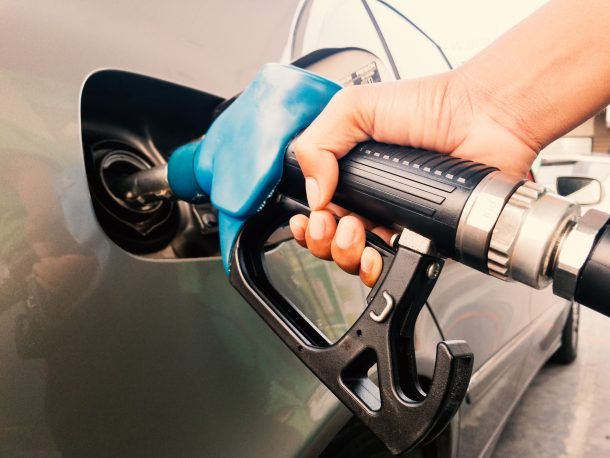



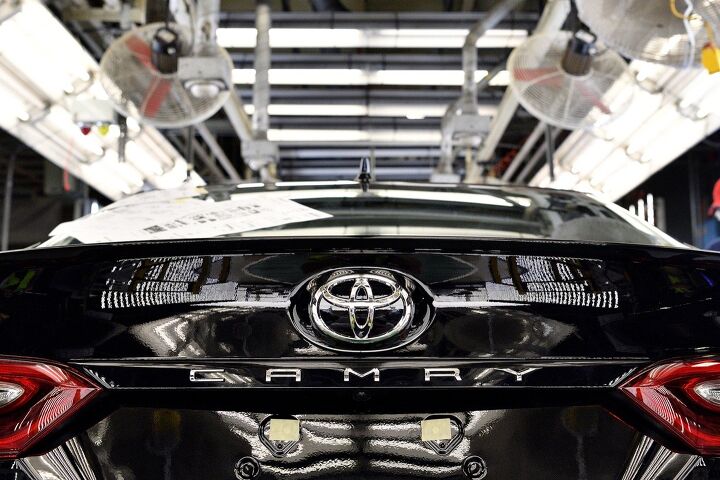
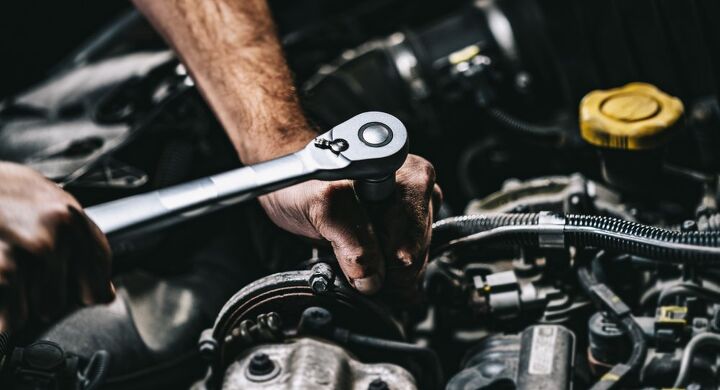



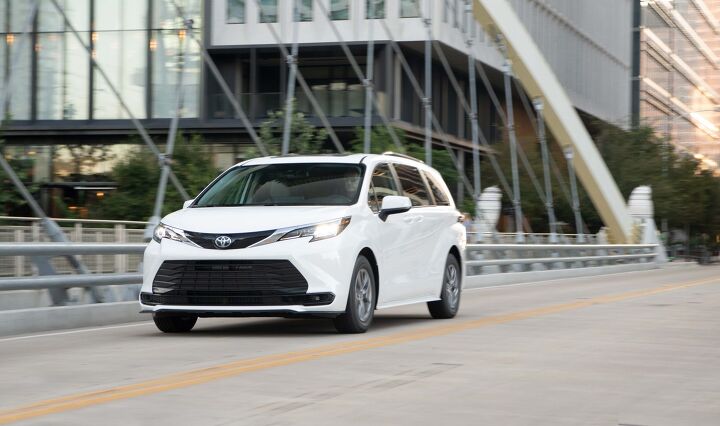
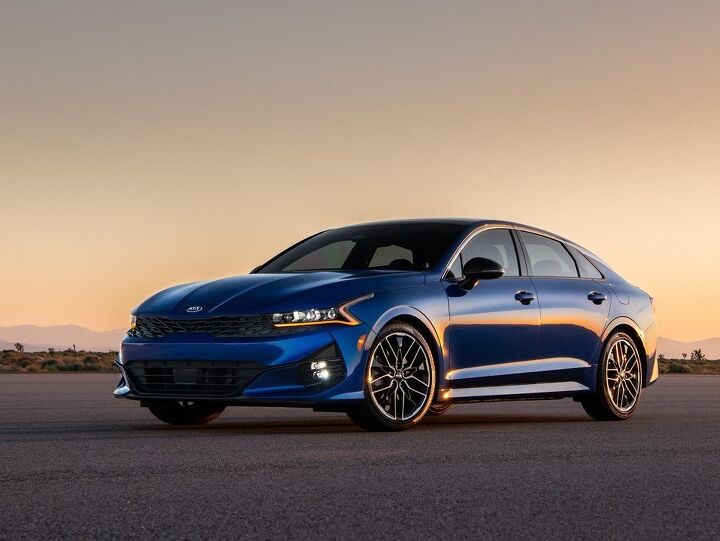

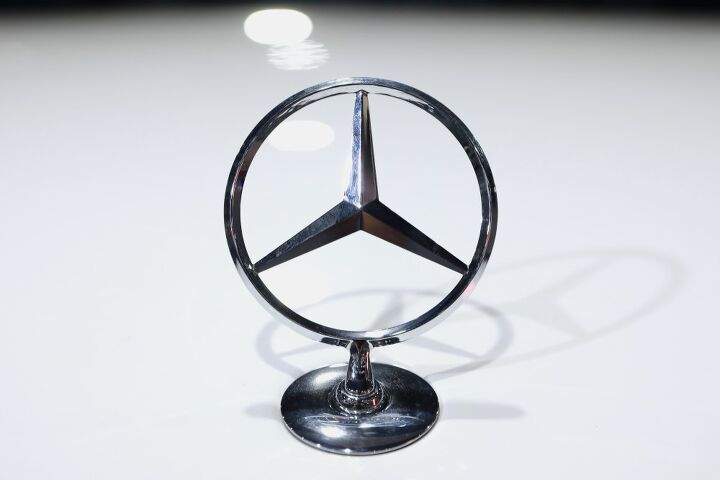



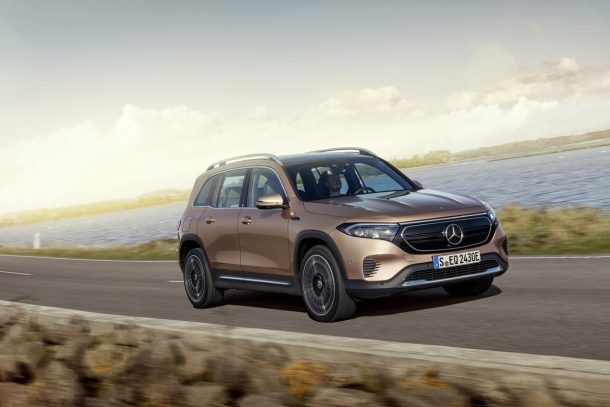


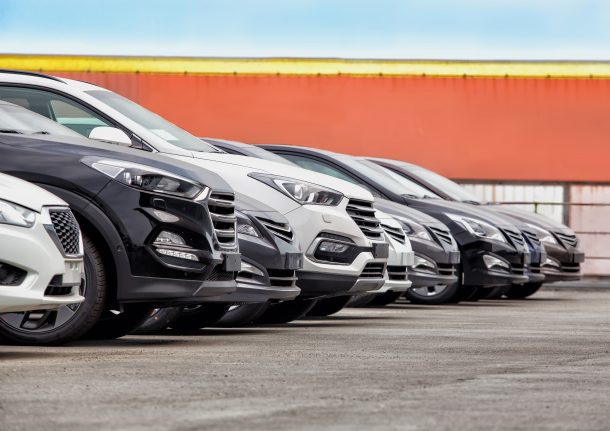
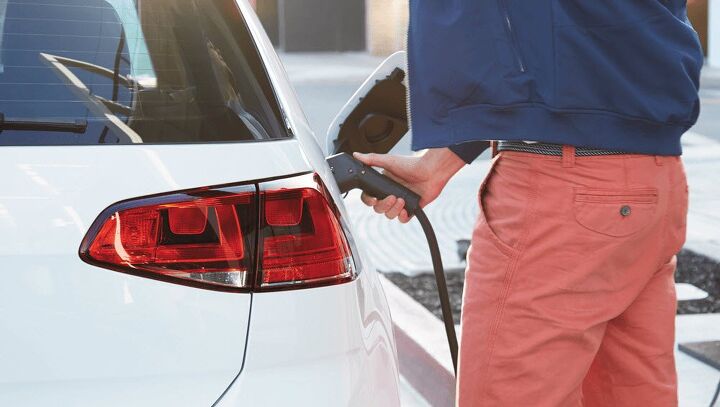




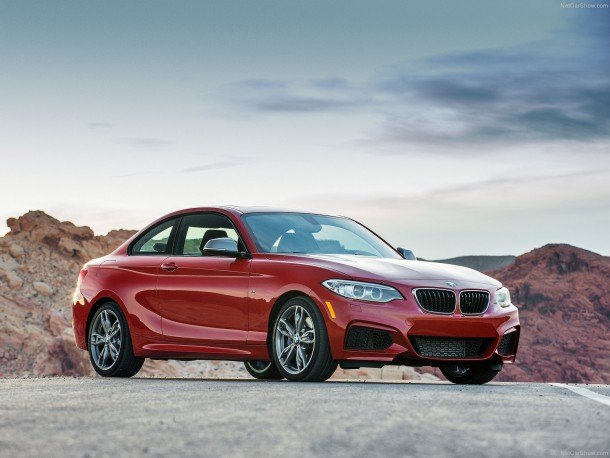

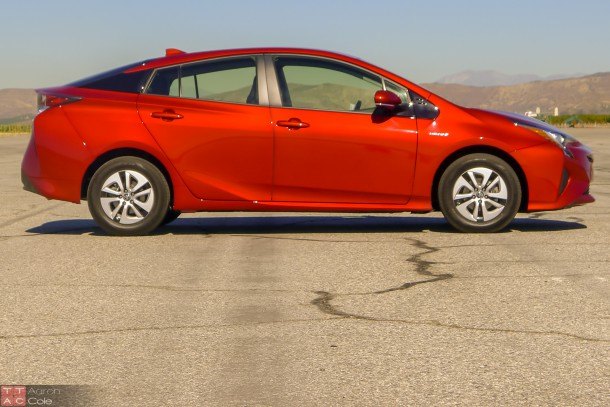


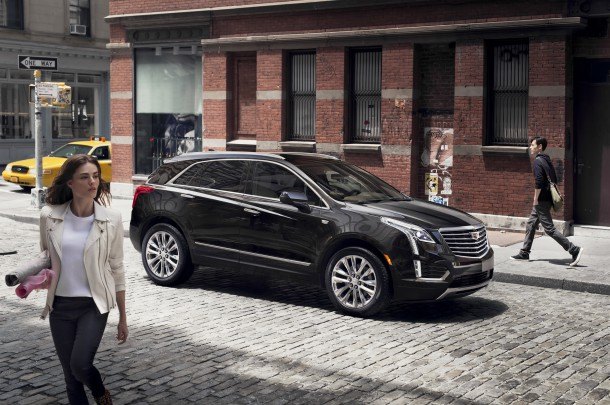

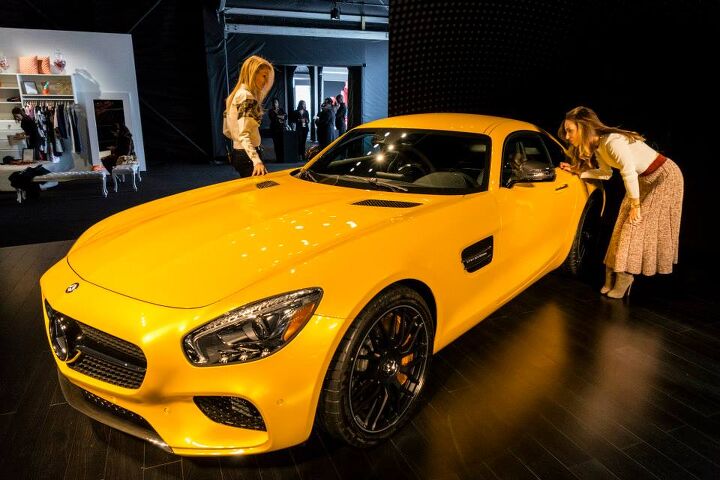


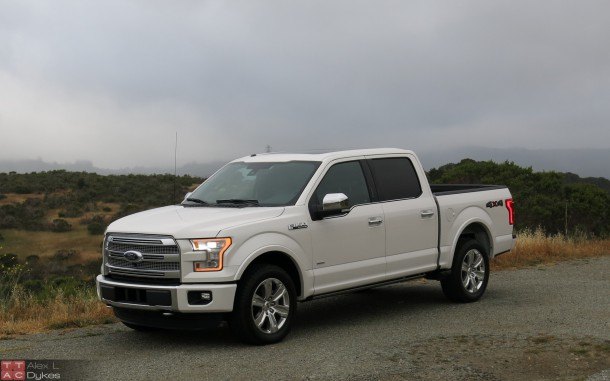



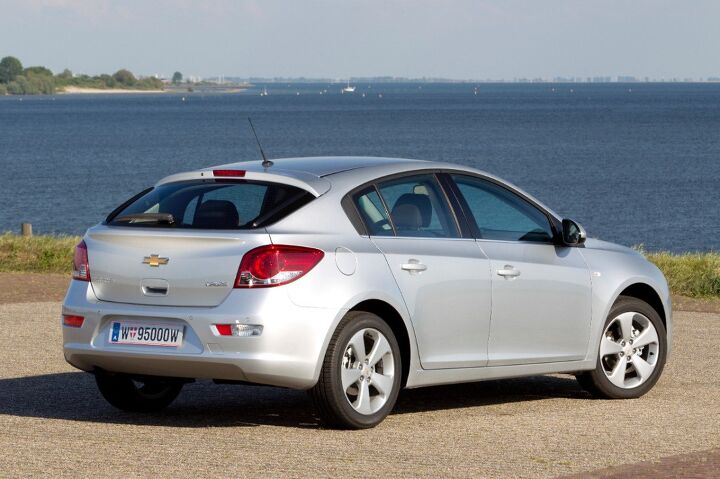



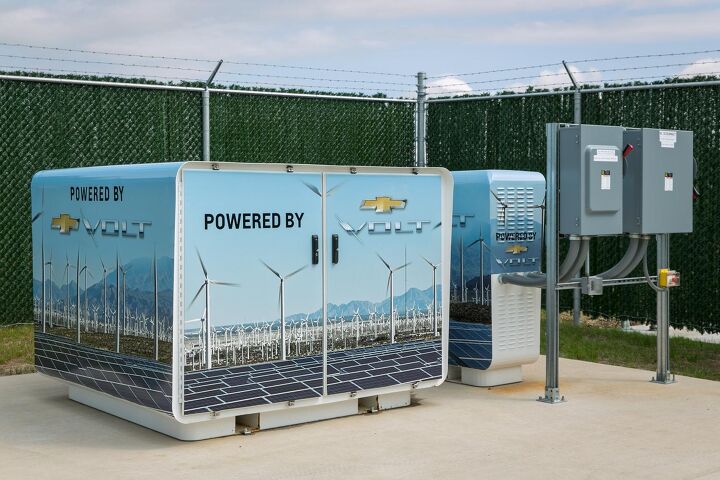






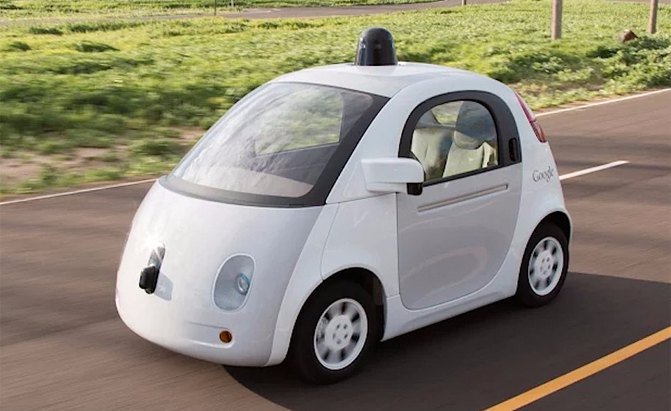
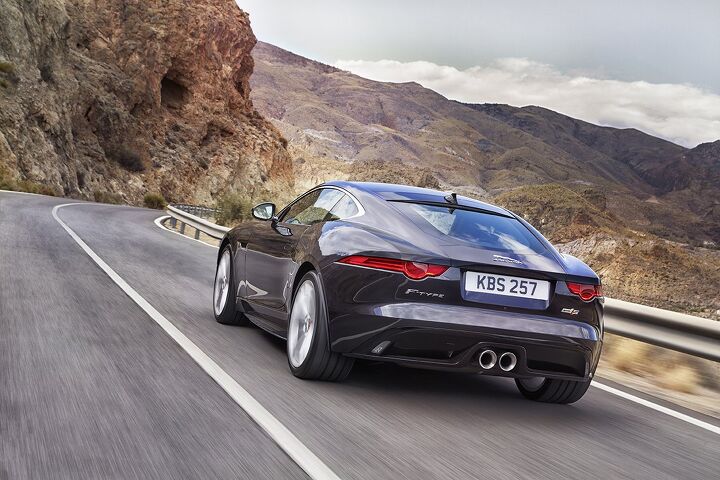

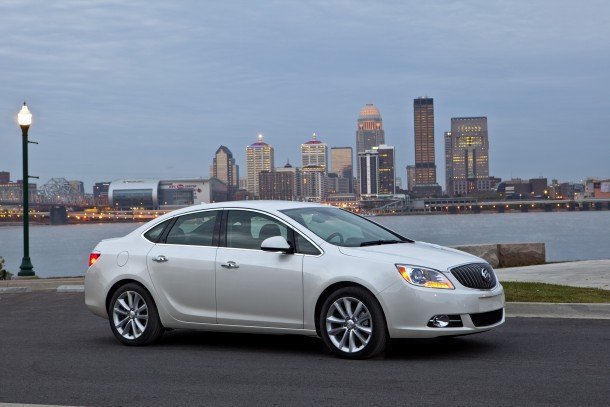
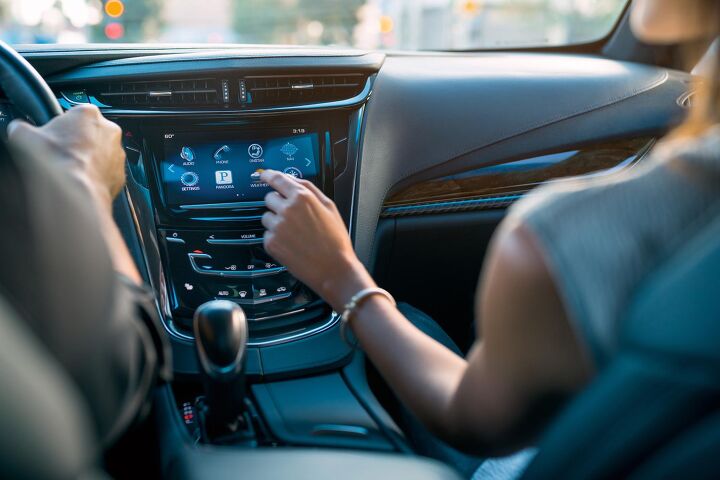















Recent Comments